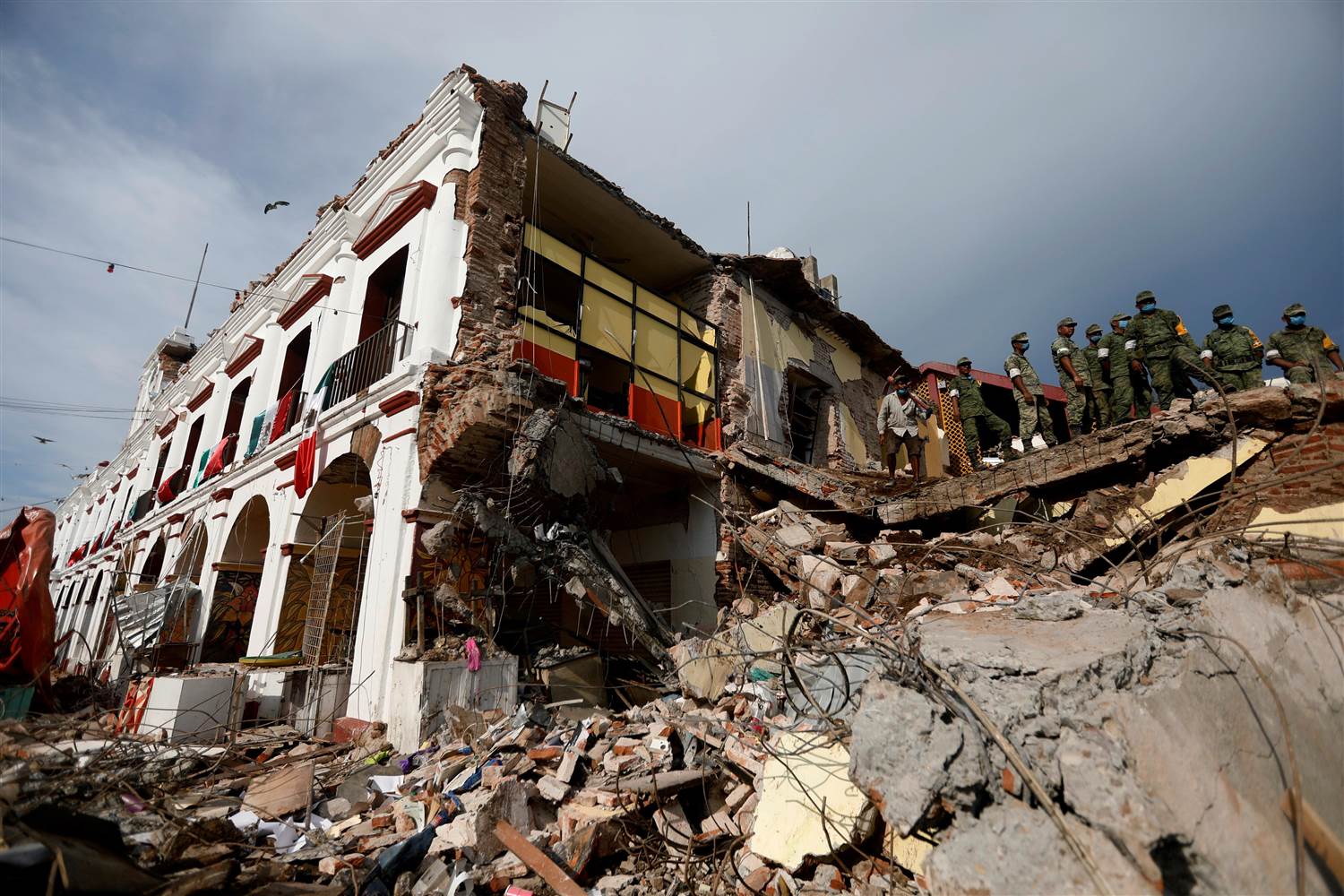By Ross Stein, Temblor
Reprinted ‘From The Prow’ of the American Geophysical Union
Fire and Rain

Over the past week, those of us living in northern California, and perhaps people throughout the arid western U.S., have watched in horror as fires continue to sweep through the wine country, taking lives and livelihoods. As we watch fires burn, we have been asking ourselves “Am I safe should I find myself in the same situation? Do I have a protective perimeter around my house, a ready water supply, and the ability to evacuate if needed? What would I take with me if I had 5 minutes to flee my home? What is so precious that we can’t let it burn?” Not so long ago, many of our friends and family in Houston were making a similar assessment as Hurricane Harvey emptied its torrential rains onto the coastal plain and into Houston’s bayous. As streets turned into canals, even evacuation became treacherous, and the possessions one could take with them even more limited. And after each disaster, we asked ourselves, ‘Do I have flood insurance? Check. Do I have fire insurance? Check.’ At least we had those.

The Last Quake and the Next
But when it comes to large earthquakes, at best we will only have seconds of warning before the strongest shaking, just enough time to ‘Drop, Cover, and Hold On.’ Forget evacuation, don’t even try to run outside, just get under a table or desk, and ‘brace for impact.’ Whether our homes escape damage will largely depend on when and how well they were built, and if they are older, whether they were seismically strengthened (retrofitted). My home, in Redwood City, CA, was built in 1977 and we had it retrofitted in the 1990’s. Earthquake emergency kit in my car and home? Check. Earthquake insurance? Check. Unsecured glassware, china, armoires and TV’s? We just did a new round of bolt-downs. But could we do more? Absolutely.
Only a month ago, the M=7.1 Puebla, Mexico, earthquake collapsed over 46 buildings in Mexico City, killing 369 people. Mexico City, built on a former lake bed, acts like a giant water bed, amplifying seismic waves by factors of 10-50. Inspections have already revealed that all the buildings that fell were constructed before the upgraded 1987 Mexico building code, and most were inadequately reinforced concrete structures. But California has tens of thousands of these old buildings as well, and the Los Angeles basin and San José, among other cities, also strongly amplify seismic waves. So, in a very real sense, we are all Mexico City. Our time will come.

The Great ShakeOut
On Thursday, October 19 at 10:19 am local time, California, and many other states, will hold its annual Great ShakeOut drill. Already, 10 million people in California (52 million in the United States) have been registered through their schools, employers, or signed up individually. The ShakeOut is a scenario where we practice to ‘Drop, Cover, and Hold On.’ In some states, there will be staged emergency response exercises to treat the wounded, clear roadways, and dig into mock collapsed buildings. But for most of us, this is our once-a-year chance to develop the muscle memory that we’ll have to rely upon when our time is called.
Against the backdrop of this terrible fall — Hurricanes Harvey, Irma, and Maria, the Mexico City quake, and the Northern California fires— there is a larger message we must take from the Great ShakeOut. Surely, it is not just a matter of diving under your desk for a few seconds and going back to work. Instead, we need to awaken from our seismic stupor, and strengthen our own defenses. Creating emergency kits for our and families, securing our contents, retrofitting our home, moving to a safer apartment, getting earthquake insurance, and becoming trained as a CERT (Community Emergency Response Team) responder, are steps we can all take.
So, when you are huddled under your desk at 10:19 am on Thursday, ask yourself what you can do when you rise to make you and your family safer and stronger in the face of the inevitable.
- Magnitude 7 Yukon-Alaska earthquake strikes on the recently discovered Connector Fault - December 8, 2025
- Upgrading Tsunami Warning Systems for Faster and More Accurate Alerts - September 26, 2025
- April 2025 magnitude 6.2 earthquake near Istanbul highlights strengths and weaknesses in seismic mitigation - September 14, 2025
